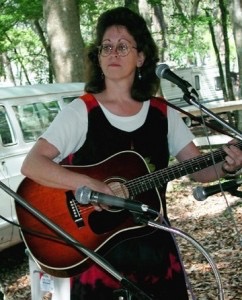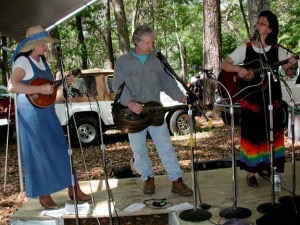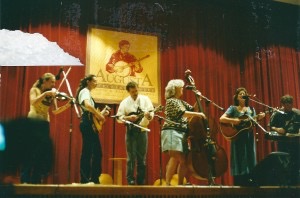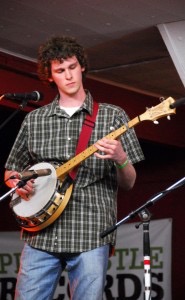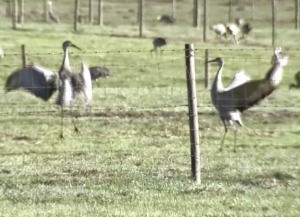 There’s nothing sweeter than attending a special “Mother’s Day Program” at your child’s elementary school. In 2001 I attended such an event in Ms. Stephanie Warmouth’s 2nd grade class at P.K. Yonge Elementary School in Gainesville. With the help of reporter Alexa (Woell) Elliott we put together this musical montage of the program highlights mixed with actual comments from the moms and kids themselves about the meaning of “Mother’s Day.” This particular feature won “Best Use of Sound” from the Florida Associated Press Broadcasters in 2002. Enjoy this special tribute from my audio archives from WUFT and Happy Mother’s Day!
There’s nothing sweeter than attending a special “Mother’s Day Program” at your child’s elementary school. In 2001 I attended such an event in Ms. Stephanie Warmouth’s 2nd grade class at P.K. Yonge Elementary School in Gainesville. With the help of reporter Alexa (Woell) Elliott we put together this musical montage of the program highlights mixed with actual comments from the moms and kids themselves about the meaning of “Mother’s Day.” This particular feature won “Best Use of Sound” from the Florida Associated Press Broadcasters in 2002. Enjoy this special tribute from my audio archives from WUFT and Happy Mother’s Day!
Tag Archives: Donna Green-Townsend
BLOG: “I Love To Sing”
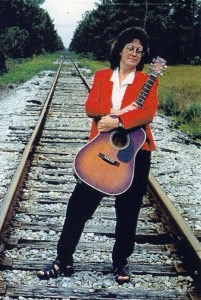 Performing has been a personal passion for me since I was a young girl. Though it wasn’t something I pursued professionally, singing and playing has been a fun part of my life and just naturally comes from being raised in a musical family. My dad, Sterling Green, taught me my first few guitar chords when I was around the age of 10 or 11 and let me plunk around on an old electric guitar. I always loved to sing, though I didn’t purchase my own guitar until after college. My two older brothers Dan and Sterling both learned to play guitar as well and my younger brother Stan learned to keep rhythm on a snare drum while my mom added her part by playing a comb.
Performing has been a personal passion for me since I was a young girl. Though it wasn’t something I pursued professionally, singing and playing has been a fun part of my life and just naturally comes from being raised in a musical family. My dad, Sterling Green, taught me my first few guitar chords when I was around the age of 10 or 11 and let me plunk around on an old electric guitar. I always loved to sing, though I didn’t purchase my own guitar until after college. My two older brothers Dan and Sterling both learned to play guitar as well and my younger brother Stan learned to keep rhythm on a snare drum while my mom added her part by playing a comb.
On weekends in the 60’s and 70’s we’d get together with my dad’s brother Ralph who played guitar and sang and our Uncle Forest who played the fiddle and we’d spend hours and hours making some great music together. Those were special times. Sadly, both my dad and his brother passed away in 1982 only five weeks apart from heart problems, but what they taught us will live on in our memories forever.
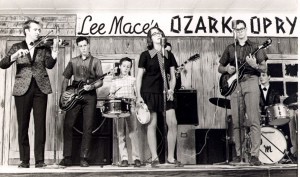 In the early years, whenever my mom could, she’d sign my brothers and me up for various talent shows around our small town of Montgomery City in Missouri. I have to laugh when I think about taking 4th place at the “Old Settlers Picnic” in nearby New Florence, MO for singing “Worms.” I think I won a whole $2.00. My brothers fared much better winning 2nd with their version of “Wildwood Flower.” Later we had the opportunity to play on stage with some of the members of Lee Mace’s Ozark Opry in a talent show. I was only in 8th grade and sang a rather adult song, “Charlie’s Shoes.” We didn’t win, but it was a great experience for all of us.
In the early years, whenever my mom could, she’d sign my brothers and me up for various talent shows around our small town of Montgomery City in Missouri. I have to laugh when I think about taking 4th place at the “Old Settlers Picnic” in nearby New Florence, MO for singing “Worms.” I think I won a whole $2.00. My brothers fared much better winning 2nd with their version of “Wildwood Flower.” Later we had the opportunity to play on stage with some of the members of Lee Mace’s Ozark Opry in a talent show. I was only in 8th grade and sang a rather adult song, “Charlie’s Shoes.” We didn’t win, but it was a great experience for all of us.
Though that was a long time ago, my family’s love for music has been passed down to our children. My brothers Sterling and his son James, Dan and his son Daniel and Stan’s son Sam all play guitar. My own son Lee plays banjo and guitar and my daughter Jessie loves to sing. (My daughter Ellie used to play guitar and I hope will take it up again one day).
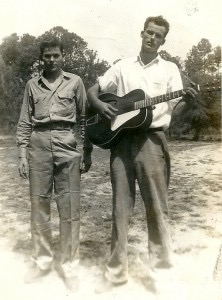
My husband Lee grew up playing music as well following in the footsteps of his dad, Dorsey Lee Townsend, Sr. It’s been said he spent four decades playing around North Central Florida with his brother Jesse and even Chubby Wise. Music is just good for the soul.
In 1981 and 1982 while working as the News Director for KHCC-FM in Hutchinson, KS I had the opportunity to conduct interviews with all of the musicians and top contestants of the Walnut Valley Festival in Winfield, KS. Our station then produced a 13-part series of music programs for national distribution on public radio two years in a row. The experience of meeting such legends as Doc Watson, Norman Blake, Bryan Bowers, Dave Grisman, Tim O’Brien, Sam Bush and Bela Flek was all it took for me to be renewed with musical energy.
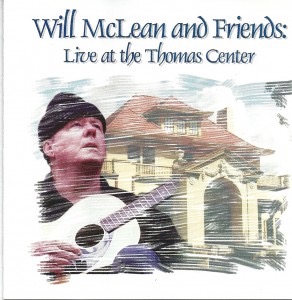
In 1983 I moved to Florida to begin work as a news producer for WUFT-FM. Less than two years later I had the opportunity to meet Florida’s Black Hat Troubadour, Will McLean. I had learned one of his most famous songs, “Hold Back The Waters,” while producing the “Walnut Valley Series.” When he realized I knew his song he asked me to sing it with him at his November, 1985 concert at the historic Thomas Center in Gainesville. That concert eventually became a CD produced by WUFT. Here is the introduction to the song that night in 1985
and here’s the recording of Will McLean, Murphy Henry and me singing “Hold Back The Waters.”
Just a few years later I bought a nicer guitar and began to go to music jams in the Gainesville area.
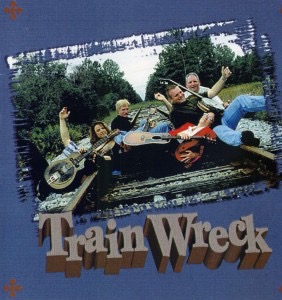 One Christmas season when my mother and I were discussing Christmas presents she told me not to get her anything that cost a lot as she knew I was struggling to pay for three children in daycare. I rounded up some of my favorite music buddies and asked if they’d consider getting together to produce a CD for my mom. I had just met some of these guys, but they all said yes. With the help of WUFT-FM ‘s (former) Program Director Bill Beckett we gathered at Bill’s home and recorded around 11 tracks for what became known as “Train Wreck.” Bill mixed as he recorded while we were all gathered around microphones in a large circle in his living room. The gathering included David Cook on piano, Art Crummer on dobro, Dave McBrady on banjo, Dan Peterson on bass, Ned Stewart on guitar and Ray Valla on mandolin. We’d practice the song once, maybe twice, and walla….we did it for real. It was an amazing night. Four more tracks were recorded on a separate night, including two songs written by my friend Priscilla Bingham and with the additional help of Ron Bowman on fiddle. Here are the tracks on the CD:
One Christmas season when my mother and I were discussing Christmas presents she told me not to get her anything that cost a lot as she knew I was struggling to pay for three children in daycare. I rounded up some of my favorite music buddies and asked if they’d consider getting together to produce a CD for my mom. I had just met some of these guys, but they all said yes. With the help of WUFT-FM ‘s (former) Program Director Bill Beckett we gathered at Bill’s home and recorded around 11 tracks for what became known as “Train Wreck.” Bill mixed as he recorded while we were all gathered around microphones in a large circle in his living room. The gathering included David Cook on piano, Art Crummer on dobro, Dave McBrady on banjo, Dan Peterson on bass, Ned Stewart on guitar and Ray Valla on mandolin. We’d practice the song once, maybe twice, and walla….we did it for real. It was an amazing night. Four more tracks were recorded on a separate night, including two songs written by my friend Priscilla Bingham and with the additional help of Ron Bowman on fiddle. Here are the tracks on the CD:
Track 1- Intro and Wreck of the ‘ole 97
Track 2- Blue Ridge Mountain Blues
Track 3- Goodbye Little Darlin’
Track 4- Blue Kentucky Girl
Track 5- Don’t Come Cryin’ To Me
Track 6- Shady Grove
Track 7- Cryin’ My Heart Out Over You
Track 8- Sadie
Track 9- No One Will Ever Know
Track 10- Rough and Rocky
Track 11- Down South
Track 12- Peach Pickin’ Time in Georgia
Track 13- I Wouldn’t Change You If I Could
Track 14-Old Fashioned Love
Track 15- From Loving You
My mother treasured that CD, especially when she went through four years of dementia in a nursing home. Music helped to soothe her and it helped her to remember. It’s so interesting how dementia patients can remember lyrics despite memory loss.
Following the recording of the first Train Wreck CD I began to do more live performances at folk festivals and church events. See some of the videos below:
Performing Highway of Sorrow with Art Crummer on dobro and Lynn Hall on banjo at a Sunday Sampler in Dunnellon, FL in the spring of 2000
Someday We’ll Meet Again Sweetheart:
“Where Could I Go”
Donna, Jessie and Lee Townsend singing Never Grow Old at the Homecoming services for the Providence United Methodist Church in Windsor, FL on October 26, 2014
Donna, Jessie and Lee Townsend performing I’ll Fly Away at the Homecoming services for the Providence United Methodist Church in Windsor, FL on October 26, 2014
Singing Little White Church at the Homecoming Services for the Providence United Methodist Church in Windsor, FL on October 26, 2014
Singing Where The Soul of Man Never Dies at the Homecoming Services for the Providence United Methodist Church in Windsor, FL on October 26, 2014
The following music tracks are some of my favorite live performance recordings:
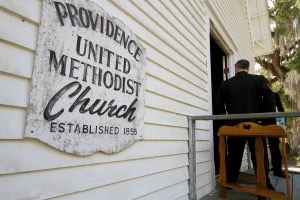 By The Mark performed at the Providence United Methodist Church in Windsor, FL in October 2012 with Lee Townsend on guitar and vocals and Cedric Forson on vocals
By The Mark performed at the Providence United Methodist Church in Windsor, FL in October 2012 with Lee Townsend on guitar and vocals and Cedric Forson on vocals
Conch Island performed at the Will McLean Folk Festival in 2001 with Art Crummer on guitar
Hot Buttered Rum performed at the Will McLean Folk Festival in 2001 with Art Crummer on dobro, Dave Cook on guitar, Annie McPherson on mandolin and Dennis Devine on bass
I’m Goin’ Back To the Old Home performed at the Augusta Heritage Center in Elkins, WV in August, 2000
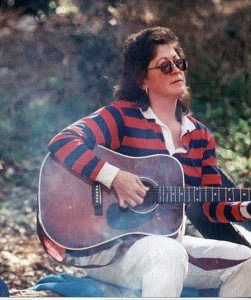 Mississippi You’re On My Mind sung around a campfire at White Springs during the FL Folk Festival in 1999
Mississippi You’re On My Mind sung around a campfire at White Springs during the FL Folk Festival in 1999
Never Grow Old performed with my son Lee on banjo
“Angel Band and Old Rugged Cross” Medley performed at the New Cross Creek Baptist Church at the April, 2013 Homecoming Sing
“I Saw The Light and I’lly Fly Away” medley performed at the New Cross Creek Baptist Church on October 14th, 2012
Mississippi You’re On My Mind
Performing “Never Grow Old” with son Lee and daughter Jessie at the Paran Baptist Church Gospel Sing on Saturday, April 5th, 2014
“Where The Soul of Man Never Dies” performed by Donna and Lee Townsend at the New Cross Creek Baptist Church at the April, 2013 Homecoming Sing
Water levels improving on Alachua County lakes
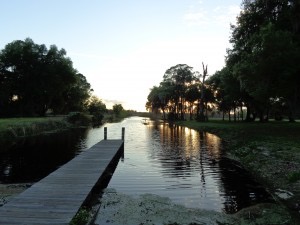
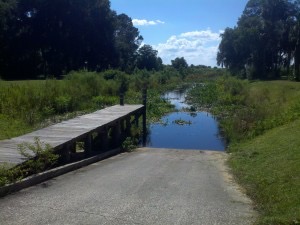
Business has picked up in the Cross Creek area in the past few weeks thanks to heavy rainfall during the first three months of this year. Lake levels are up in Orange and Lochloosa Lakes in Alachua County resulting in more boat traffic in recent weeks. People are fishing and airboating once again.
For many months boaters couldn’t navigate Cross Creek to get in to either lake because of dense plant growth due to low rainfall. According to the St. John’s River Water Management District, Alachua County received 14.28 inches of rain between January 1st and March 18th. That’s 11.33 inches more than the same period last year. The Keystone Heights area has received 14.35 inches since January 1st, which is 12.02 inches more than the same period last year.
Local residents in Cross Creek say that in the past week they observed the Florida Game and Fresh Water Fish Commission releasing 125,000 fingerling bass in Orange Lake. Area residents are calling this a positive move to help recreational fishing for the near future.
Original Story in September, 2013
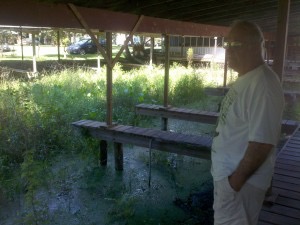
By Donna Green-Townsend and Amanda Jackson
Cross Creek Lodge once catered to fishermen, hunters, and people with a love for the great outdoors. But with lake levels staying low for many years it seems the lodge will never thrive as it did in the past. Owner and operator of the Cross Creek Lodge Gary Palmeter opened the doors to his business, which sits on the creek between Orange and Lochloosa Lakes, more than three decades ago. With lake levels constantly rising and falling he has only been able to operate for 12 of the 33 years he’s been in business. (Video below includes interviews with Dale Crider on Newnans Lake and with Gary Palmeter on the Cross Creek area)
“I’m losing a lot of money every year, we used to have a cafe, that’s gone,” says Gary Palmeter, “Had we had enough water we could have probably maintained that. If the state would do something about the hunter permits that they allow people to use we could have hunters here. Right now we have hunters, a few of them for maybe like 2 months. We used to have a number of people that stayed here through the hunting season, but if they don’t get a permit, which is a lottery type thing, they don’t come. That’s a loss to not only the community but the county because that’s tourist dollars, out the window!”
Palmeter says he feels there’s more to this problem than just rain. A sinkhole under Orange Lake, which is a major source of contention between Marion and Alachua counties, is also thought to be draining a large amount of water from the lake.
“So that’s you know the crux of the problem besides the rain. I mean yeah, we get water levels and I understand that we’re not going to maintain a high level, but with the water continually flowing out of the lakes there’s nothing that’s ever going to be done to help stabilize them.”

But for those who think that large amounts of rain that accompany Florida summers can refill the extremely low lakes, Palmeter knows the reprieve is only temporary.
“Even when we got the two hurricanes that came late in 2004 if I remember right, that water only held for 18 months. It was up sufficiently so that we could have boats here launch. We had boat and motor rentals again. And we’re not going to go through that again I don’t think.”
For now, boats slips at the Cross Creek Lodge are filled with grass instead of boats. Other local businesses have been suffering as well. Although it is still open for business, the Yearling Restaurant in Cross Creek, is up for sale. With continued limited lake access Palmeter says its hard to keep these businesses running.
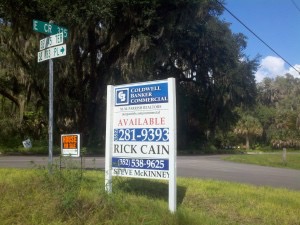
“We still keep the motel going and we try to keep the campground going the best we can, but the motel hasn’t done anything because most of the people that want to come here to stay are fishermen. The first thing when they call I explain the situation. And I like to be up front with people, and as a result it probably in some way hurts our business. But I kept thinking in the long term it would improve but it hasn’t. We’ve lost our base of business, the fishermen that used to come here. They call and sometimes want to bring their son to where they used to fish. Well, they can’t do that anymore. So you’ve really lost your whole base of business.”
Alachua County Environmental Protection Director Chris Bird says that no matter how much it has been debated over the past 50 years there isn’t anything that can be done to the Orange Lake sinkhole without causing even more damage.
“The geology of that lake is such that if you did try to plug them up, the sinks in the bottom of the lake, assuming you thought it was a good idea, most likely what would happen is that there would just be other sinks that would open up other places because there’s just a lot of pressure,” says Bird. “And the way that system naturally flows is that actually the southern part of Orange Lake is recharge. They’ve actually done dive trace studies that suggest that that water is draining back into the aquifer. And it’s part of the Silver springshed, so again, there’s just a lot of important relationships. And because of that, at least in my opinion, it would not be wise to start trying to mess with mother nature.”
To see a music video highlighting lake levels click below:
Orange and Lochloosa lakes are not the only lakes experiencing low levels in Alachua County. Newnans Lake has also felt these water fluctuations. Retired wetlands and wildlife biologist for the Florida Fish and Wildlife Conservation Commission Dale Crider has seen the level changes while living by the lake. Crider says the situation is not much different from the water level issues in Keystone Heights.
“I think it’s like most north Florida lakes that it’s tied in to the Floridan aquifer which is overpumped and underfed right now because we’re not getting the rains we used to,” says Crider, “and it’s overpumped from all sources from municipal to agriculture to you name it. It seems like there’s such a capacity for this water to be soaked up and disappear through sinkholes and underground terrain. You know there’s not this capacity to fill up the aquifer so that it bubbles above the surface anymore.”
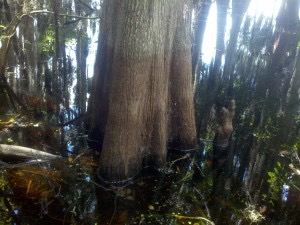
Crider pointed to a tree where the water level line was three weeks ago which showed how far it had decreased in a short time. He says it demonstrates the lakes still aren’t healthy
“There’s still this suction kind of thing and I don’t think this flood that we’ve had made that big of an impression for that long that it would have filled up the aquifer to where we can go back to using water normally. I don’t think we’ll ever reach that point where what we used to call normal use of water for watering our lawn or just filling our swimming pool more frequently or whatever we do with it, I think those days are past.”
Something Crider and Palmeter both agree on is that county officials and water regulators will need to do a better job of overseeing Florida’s water resources.
Will McLean Archival Audio Interviews from 1985 and 1987 (never before published)
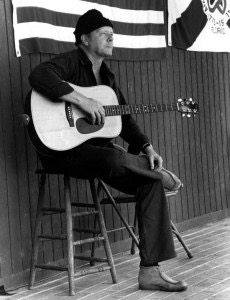
(Raw Interviews from 1985 and 1987 featured below)
(all photos courtesy of Margaret Longhill and the Will McLean Foundation)
In November of 1985 Will McLean showed up at my office at WUFT-FM on the University of Florida campus. McLean, known to many as the “Black Hat Troubadour” penned hundreds of songs, stories and poems about what he called his “beloved Florida sand.” McLean, who died in 1990, was the first folk artist inducted into the Florida Artists Hall of Fame.
As I documented in earlier posts, McLean wanted to hang up some fliers about his November 17th, 1985 concert at the historic Thomas Center in Gainesville. I had only lived in Florida about a year and a half at that point. Though I had never met him and didn’t know a lot about him I did know one of his songs very well. “Hold Back The Waters.” It was about the 1928 Hurricane that killed between 3,000 to 4,000 people. The song had become very popular in folk music circles. That fact alone enticed me to ask Will to sit down for an interview in 1985. A couple of years later, after I’d gotten to know him better, I asked Will to come in for a second interview. The two interviews have been in my personal audio archives for nearly 30 years. I thought it was about time I shared them on my website.
Author’s note: My voice sounds very young in these old interviews. Also, the interviews below are from cassette dubs from the original reel to reel tapes. Some of the 1985 cassette dubs have gotten a little scratchy over time. I am anxious to see how the original reel to reels will sound if I can get my hands on a reel to reel machine. The 1987 dubs from the cassette below sound much better. I’m including both years for the sake of archival history).
I’m posting the interviews in a couple of different ways. You can either listen to the interviews in their entirety or listen to them in separated segments (see below).
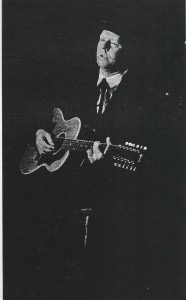 Will McLean Interview in 1985
Will McLean Interview in 1985
1985 Full Interview
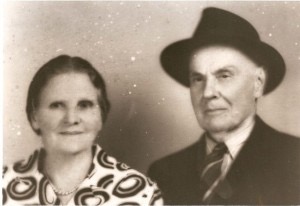
Segment 1: Will shares stories about his grandfather and mother
Segment 2: Will talks about the public radio Prairie Home Companion host Garrison Keillor
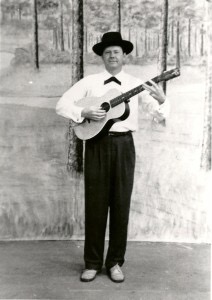
Segment 3: Will shares the story of his song “Hold Back The Waters”
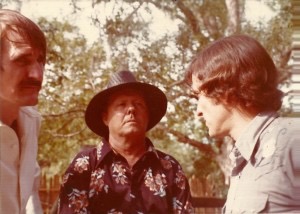
Here’s the song Hold Back The Waters:
Segment 4: Will shares the story of performing at Carnegie Hall in NYC with Pete Seeger
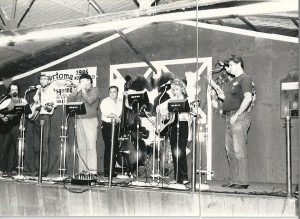 Segment 5: Will talks about giving his music away and his song Macclenny Farewell
Segment 5: Will talks about giving his music away and his song Macclenny Farewell
Here’s the song Macclenny Farewell:
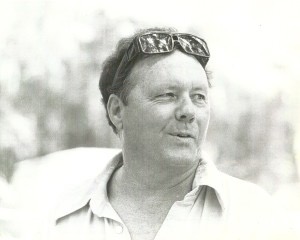 Segment 6: Will shares the story of his wife Alice’s cancer battle and finding new love
Segment 6: Will shares the story of his wife Alice’s cancer battle and finding new love
Segment 7: Will talks about environmental concerns
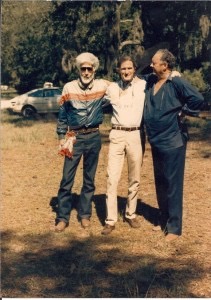
Segment 8: Will talks about his friends Gamble Rogers, Paul Champion and Cousin Thelma Boltin
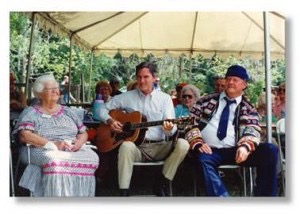
Segment 9: Will talks about the Florida songs he’s written that he’s most proud of
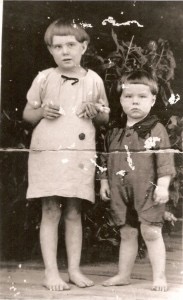
Here is Will’s song Florida Sand:
Here’s Away O’ee:
Segment 10: Will shares more about his Carnegie Hall performance in NYC
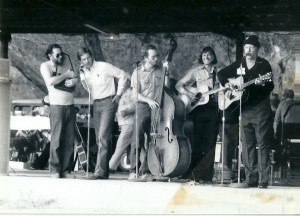 Will McLean Interview in 1987
Will McLean Interview in 1987
Full interview with Will McLean in 1987 Part One
Part Two of the full interview in 1987 Will addresses whether he’d ever go back to Rosewood to try and gather material for a song
Shorter separated segments:
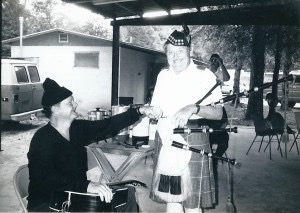 Segment 1: Will shares the story behind his song The Ballad of Scotty
Segment 1: Will shares the story behind his song The Ballad of Scotty
Here’s the song Ballad of Scotty
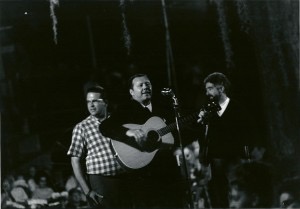 Segment 2: Will talks about the inspiration for his song Wild Hog
Segment 2: Will talks about the inspiration for his song Wild Hog
Here’s the song Wild Hog:
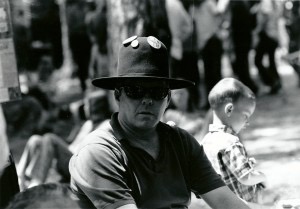 Segment 3: Will shares the story of Cush Holston
Segment 3: Will shares the story of Cush Holston
Here’s Will’s song Cush Holston:
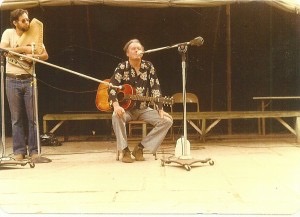 Segment 4: Will gives the background on Tate’s Hell
Segment 4: Will gives the background on Tate’s Hell
Here’s Will’s song Tate’s Hell:
Segment 5: Will talks about his grandfather
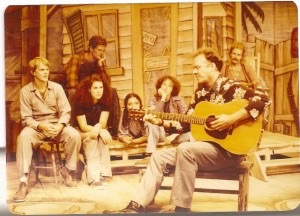
Segment 6: Will talks about “who” he is and why
Segment 7: Will shares the story of being run out of Rosewood (he refers to it as Rosehill)
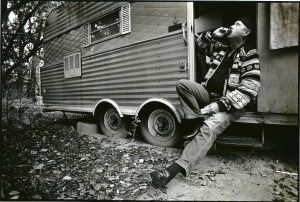 Segment 8: Will talks about the 1928 hurricane and his song Hold Back The Waters and his relationship with the Seminoles
Segment 8: Will talks about the 1928 hurricane and his song Hold Back The Waters and his relationship with the Seminoles
Here are Will’s songs Seminole and Osceola’s Last Words:
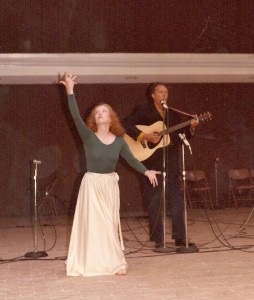
Segment 9: Will talks about his dream for a ballet featuring his songs of Florida
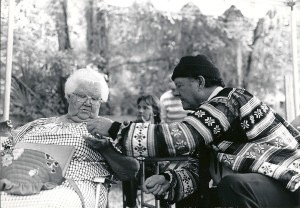
Segment 10: Will talks about what he’s been writing lately
Segment 11: Will talking about whether he would go back to Rosewood to try and gather song material
Segment 12: Will talks about environmental concerns for Florida
Florida’s Harry T. Moore: His Legacy and Fight For Equality
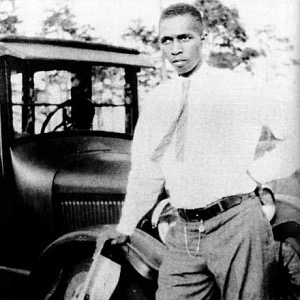
Thousands traveled to Washington D.C. last August to commemorate the 50th Anniversary of the March on Washington and Martin Luther King, Jr.’s “I Have A Dream Speech.” But before King ever made that speech on August 28th, 1963, Floridian Harry T. Moore was doing groundbreaking work in the state registering African American voters. Moore also investigated police brutality and lynchings. Sadly, Moore and his wife Harriette died when someone planted a hate bomb at their home in December of 1951. No one has ever solved the murder. In January of 2001, PBS aired a documentary on Harry T. Moore called, “Freedom Never Dies: The Legacy of Harry T. Moore.” The program was produced by Sandra Dickson and Churchill Roberts from the University of Florida Documentary Institute (the Institute is no longer at UF because of budget cuts). Donna Green-Townsend talked with them about the production of this 90-minute documentary and why Moore’s contributions and sacrifice have been largely forgotten until now. (originally broadcast on WUFT in January, 2001).
Full script of feature:
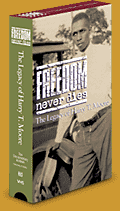 Even though many are celebrating the life of the late Martin Luther King Jr. this month, there’s another unsung hero of the civil rights movement who is being remembered this month, Harry T. Moore. Donna Green-Townsend reports, Moore, who was born, raised and died in Florida, is finally receiving national acclaim for the civil rights groundwork he started in the state in the 1940s fighting for civil rights.
Even though many are celebrating the life of the late Martin Luther King Jr. this month, there’s another unsung hero of the civil rights movement who is being remembered this month, Harry T. Moore. Donna Green-Townsend reports, Moore, who was born, raised and died in Florida, is finally receiving national acclaim for the civil rights groundwork he started in the state in the 1940s fighting for civil rights.
“It had all the elements of a great story. I mean here was an American hero. Very few people were knowledgeable about this story. The first civil rights martyr. You know, it was just a terrific topic.”
Documentary Co-director and writer of “Freedom Never Dies: The Legacy of Harry T. Moore,” Sandra Dickson.
“We thought the story transcended Florida, that it had national significance.”
Although a few writers have documented the life of Harry T. Moore, his name has not been synonymous with the civil rights movement at the national level. Yet Dickson along with her co-director, Churchill Roberts, both from the Documentary Institute at the University of Florida’s College of Journalism and Communications, discovered Moore had a very large role in the 1930s and 40s, travelling relentlessly, encouraging blacks to vote and corresponding with authorities over issues of inequality in teachers’ salaries for blacks and whites and conducting investigations into a number of lynchings in Florida.
(nat sound from documentary)
The documentary opens with what happened on Harry T. Moore’s last night. Christmas, 1951, Harry T. Moore and his wife Harriett had just gone to bed in their home inside a small orange grove in Mims, Florida just north of Titusville. Within minutes, a bomb destroyed their lives. Ironic he would die a violent death when historians write about how calmly he spoke out about injustices he saw for blacks in Florida in the 1930s and 1940s. Frank Williams is featured in the documentary. He was one of Moore’s friends.
“He was not violent. He was so calm and collected. And so that’s what made people even more angry. Here this guy comes with a pleasant voice and says well, ‘we think it’s time that we should have equal salaries. It’s only fair. It’s only the right thing to do.’ He was a most determined man. Nothing could discourage him. Nothing could turn him around. It is as if God Almighty himself said you go down there and do that.”
Moore was born in 1905 in Houston, Florida in Suwannee County. He was an only child. His father died when he was 9. His mother sent him off to Jacksonville to live with his aunts and go to school. He finished high school however in Suwannee County. He eventually became a school teacher and principal. He had two daughters. He eventually lost his teaching job because of participation in the NAACP. He travelled continuously around the state organizing new chapters of the organization and encouraging blacks to vote. Moore’s friend Ernestine Jamerson also appears in the documentary and recalls how Moore encouraged her to get to know the candidates.
“Whoever was running for an office, he would go to them and find out their platform. Then he would come back, meet at any one of the churches and we would go and he would explain their platform and what he thought was good and what he thought was the best for us and which was not.”
(nat sound from the documentary of a letter being read that was written by Moore:
“To honorable J. Harry Shad, candidate for U.S. Senate, Gainesville, Florida. Dear sir, we note that your platform makes no mention of your stand on such vital issues as anti-lynching legislation. We note also that you express clearly your opposition to communism, but you fail to state your attitude with reference to the KKK. We shall appreciate an expression of your views on these issues. Respectively yours, Harry T. Moore, Executive Secretary, Progressive Voters League of Florida.”
Harry Moore is probably best known for his correspondence to state officials on a number of lynchings around the state by the KKK and others. He was particularly disturbed by the lynching of a 15 year old Suwannee County youth named Willie James Howard in 1944. Howard was bound and forced into Suwannee Springs to drown after he had written a Christmas card and letter to a white girl named Cynthia Goff. Cynthia was the daughter of a former state legislator Phil Goff. A black undertaker removed the body from the river the next day and buried him in an unmarked grave in Live Oak’s Eastside Cemetery. A grand jury found no evidence to move forward with any arrests. Howard’s parents moved away in fear. Documentary co-director Roberts says they found Howard’s mother during the shooting of the documentary, but she was too afraid to talk.
“In the process of our investigation, or during the investigation we found that the mother of the young boy who’d been lynched, who was only 15 years old at the time, that she was still alive. She had moved to Orlando in 1944 when this happened. But when we went to see if we could talk to her, she wouldn’t talk to us. And her minister didn’t know about this. And her cousin said, to this day she won’t talk about it for fear that white people from Live Oak would come and get her.”
(nat sound and music from the documentary)
With the completion of the documentary and the national attention it’s getting, Dickson says she feels she’s achieved her mission.
“I think we felt like this was a forgotten hero and we wanted to restore him to his rightful place, or at least play a small part in restoring him to his rightful place in history, not just African American history, history in general.”
The NAACP erected a marker near the Moore’s tombstone in Mims, Florida a number of years ago and the Brevard County Courthouse is named after them. A year and a half ago the state appropriated funds to erect a museum on his homesite. Documentary co-director Dickson would also like to see something else happen in honor of Moore.
“I think it’s safe to say we’d also love to see his name added to the civil rights monument in Montgomery, Alabama”
(sound from the documentary)
(quote from Moore: “Dear co-workers, freedom never descends upon people. It is always bought with a price. Harry T. Moore.”
(music out to end)
New Evidence Revealed In 25 Year old Case of Missing Tiffany Sessions
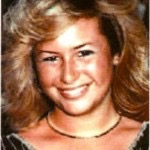
UPDATE: Investigators with the Alachua County Sheriff’s Office and family members of missing Tiffany Sessions are hoping the public can help finally solve the 25 year old cold case . At a morning press conference, new details were revealed about the man law enforcement authorities believe may be responsible for Tiffany’s disappearance when she went for a walk on the evening of February 9th, 1989 near her Casablanca East apartment on Southwest 35th Place in Gainesville.
Cold Case Detective for the Alachua County Sheriff’s office, Kevin Allen, says Paul Rowles is the primary suspect in the case. Rowles, a registered sex offender, was convicted of murdering Linda Fida, of Miami, in 1972. Though he was given a life sentence, he was paroled in 1985. Three years later he moved to Gainesville. While in Gainesville he delivered pizzas and delivered scaffolding to a construction site near the apartment where Sessions lived. Rowles ended up back in prison in 1999 for kidnapping and sexually assaulting a teenager from Clearwater. He died in prison last year.
Rowles is the same man tied through DNA evidence to Elizabeth Foster’s murder. Law enforcement authorities are now excavating a site near where 21 year old Elizabeth Foster‘s body was located after she disappeared in March of 1992. Foster’s body was found in a shallow grave on the east side of Highway 441, not far from what was then the Brown Derby restaurant, just south of Williston Road.
The most compelling evidence revealed this week is an address book found among Rowles’ prison possessions where he had made note of the date 2/9/89…the same day Tiffany disappeared. The #2 was written on both sides of the date. Cold Case Detective Allen believes the #2 refers to Tiffany as his second victim. Alachua County Sheriff, Sadie Darnell and other community leaders as well as family members of Tiffany Sessions say they hope through this excavation process they will finally find Tiffany’s body.
News of the development in the Tiffany Sessions case is making national headlines including this broadcast on CBS This Morning. (could take just a moment for video to load)
Patrick Sessions and Tiffany’s mom Hilary have never given up hope that their daughter’s body and possibly her killer would be found. Patrick has often offered his emotional support to other families of missing and murdered children through the years, despite the lack of closure in his own daughter’s case. In 2009 he offered such support to the family of Somer Thompson. The 7 year old little girl was kidnapped on the way home from school in Clay County. Her lifeless body was discovered a few days later in a Georgia landfill. Law enforcement authorities reported she had also been sexually assaulted and eventually charged Jarred Harrell with the crime. In 2012 Harrell received 6 life sentences.
In the months before the killer was identified, Patrick Sessions talked with Donna Green-Townsend about the Somer Thompson case and shared his thoughts about the positive changes in the way law enforcement now handles missing children cases. He pointed out during the interview how when his daughter Tiffany went missing there weren’t as many technological or social media tools available and how he had to personally purchase a fax machine for the Alachua County Sheriff’s office, make his own fliers and pay for tracking dogs to help search for his daughter. During this 2009 interview below Sessions also gave his personal insight about what parents today should say to their own children to stay safe. (from my audio archives)
Pete Seeger’s ties to Will McLean, the “Father of Florida Folk”
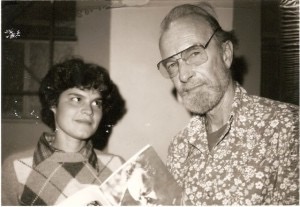
One of the most enduring and loved folk singers in the U.S. has died. Pete Seeger, who had America singing such iconic tunes as, “If I Had a Hammer” died January 27th, 2014 at the age of 94 at a hospital in New York. President Barack Obama issued a statement saying, “Pete Seeger believed deeply in the power of song, but more importantly, he believed in the power of community …to stand up for what’s right, speak out against what’s wrong, and move this country closer to the America he knew we could be. Over the years, Pete used his voice, and his hammer, to strike blows for worker’s rights and civil rights; world peace and environmental conservation. And he always invited us to sing along. For reminding us where we come from and showing us where we need to go, we will always be grateful to Pete Seeger.”
In March, 2014 Singer Songwriter from Delray Beach, Rod MacDonald, asked several other musicians and the audience at the Will McLean Folk Festival to join him in a tribute to the late Pete Seeger:

While most people will be recalling the dozens of classics he helped make famous, like Turn, Turn, Turn, Where Have All The Flowers Gone, and Woodie Guthrie’s This Land Is Your Land, among others, there are many in the Sunshine State who will remember how Seeger reached out to the “Black Hat Troubadour” in Florida, the late Will McLean. The two songwriters shared a deep respect for one another.
“Will McLean’s songs will be sung as long as there is a Florida.” That’s how Pete Seeger described his friend. That quote was shared at the 1990 memorial service for McLean who was the first folk artist inducted into the Florida Artists Hall of Fame. President Emerita of the Will McLean Foundation, Margaret Longhill, says, Seeger and McLean were both genuine people with a great songwriting connection. They both liked to write songs about everyday people and they both liked to have their audiences sing along. “Pete Seeger’s songs will live forever in the hearts of those who seek truth, justice and love,” says Longhill.

Longhill remembers attending a Pete Seeger concert at Ruth Eckerd Hall in Clearwater with McLean in the mid 1980s. Prior to the concert Seeger and McLean chatted as friends backstage. During the concert Seeger said to the audience, “Ladies and gentlemen, I would like you to know in this audience tonight is America’s greatest living songwriter, Will McLean. Will McLean stand up,” recalls Longhill.
Longhill says the story that’s been passed down is that McLean and Seeger became acquainted after McLean wrote a letter to Seeger saying, “I’m a Florida folk singer and I don’t have a guitar.” Soon after Seeger sent him a 12-string guitar. During McLean’s memorial service in 1990 many of his musician friends recalled with humor how that guitar was pawned as were many other guitars that followed.
While Pete Seeger will always be remembered for his part in the folk music revival in the 1960s, many in Florida will also think of him for providing McLean and the late Gamble Rogers the opportunity to perform at a folk music concert in Carnegie Hall in New York City. Seeger loved Mclean’s earthy songs about unique characters and places in Florida such as Wild Hog, Tate’s Hell and Osceola’s Last Words.
Though Seeger travelled and wrote songs all around the country, McLean wasn’t interested in seeking fame and fortune and preferred to remain in Florida and write about his beloved “Florida Sand.” But the two songwriters continued to have great respect for one another. Seeger even performed one of McLean’s best known Florida songs about Chief Osceola during the nationally televised “Johnny Cash Show” in 1970.
Here’s a segment from a November 1985 interview with Donna Green-Townsend where McLean shares the story of performing at Carnegie Hall in NYC with Pete Seeger
Here’s more about that special trip to Carnegie Hall in NYC from the November, 1985 interview with Donna Green-Townsend
The Will McLean Foundation continues to hold a festival each year in honor of the state’s “Black Hat Troubadour.” The festival is held each March at the Sertoma Youth Ranch near Dade City. The festival features three stages along with various music workshops and the winners of an annual songwriting contest.
Click here to go back to the Will McLean Festival Website.
Brad Whitehead Is Sworn In As Union County Sheriff
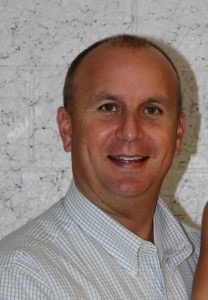
Governor Rick Scott has appointed Brad Whitehead to take over for his father, Jerry, who died last month of a heart attack.
Whitehead, 37, of Lake Butler, will be the third member of the Whitehead family to serve as sheriff of Union County. Whitehead has served as the assistant warden of programs for the Florida Department of Corrections since 2012. Past positions include serving as the assistant warden of operations and as the senior prison inspector within the Office of the Inspector General. He has also served as a law enforcement detective for the Division of State Fire Marshal, Bureau of Fire & Arson Investigations from 1998 through 2003.
Governor Scott said, “I am confident that Brad Whitehead will be a great sheriff. His experience in law enforcement has prepared him to serve the families of Union County.”
Original Story: Jerry Whitehead, The Late Union County Sheriff Describes The Community’s Strength During Tragedies
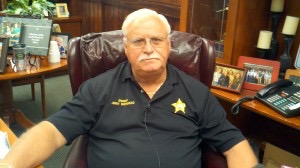
Despite a tragic school bus accident that killed seven children in Union County in 2006 and the August shooting spree when a former employee of Pritchett Trucking killed the company’s owner, 80 year old Marvin Pritchett and two of Pritchett’s employees, Union County Sheriff Jerry Whitehead says the community has learned how to cope and reach out to each other. Now the community will have to learn how to deal with the death of their long-time top law enforcement chief. Sheriff Whitehead, the longest serving sheriff in Florida, passed away on Wednesday, December 18th from an apparent heart attack. He was 60 years old. Funeral services will be held Saturday, December 21, 2013 at 2:00 p.m. at the First Christian Church of Lake Butler. Burial will be in Whitehead Cemetery. In lieu of flowers the family requests memorial contributions be made to the Florida Sheriff’s Youth Ranches Inc.; P.O. Box 2000, Boys Ranch, Florida 32064.
In this video recorded the week after the Pritchett Trucking shooting spree, Whitehead describes how Union County residents have learned how to deal with tragedy.
Video of law enforcement escorting Jerry Whitehead’s hearse the day of his funeral service.(posted by James Parker)
Cabbage Growers Race To Beat the Expected Hard Freeze
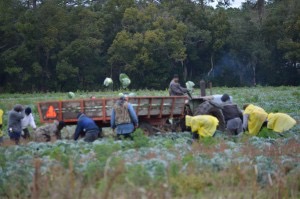
With record-breaking temperatures expected in Florida, cabbage pickers between Hastings and Palatka were busy today trying to harvest the latest crop.
Today’s scene was very similar to 2011 when cabbage growers also faced the risk of losing their winter crop to a hard freeze. Click on my archive story below to watch the process of cutting the cabbage and packaging it up for transport across the country.
Vegetable growers in North Central Florida scramble to get their crops to market during a January, 2011 freeze.
Migrating Sandhill Cranes Inspire Artistry
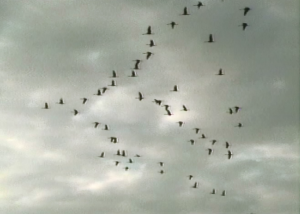 It’s that time of year again when North Central Florida serves as host to migrating sandhill cranes. Floridians are very familiar with the loud, squawking sounds of these tall birds with wing spans as wide as 6 feet as they circle above and fly to favorite feeding grounds around the Gainesville area, especially Payne’s Prairie and the shoreline and marshes of Orange and Lochloosa Lakes in Alachua County. The father of Florida folk, the late Will McLean (1919-1990), was inspired by the “dancing and prancing” of the cranes and penned the song called, “The Courtship Dance of the Florida Sandhill Cranes.” McLean is accompanied in this 1985 live recording by Kate Kennedy on bowed psaltry and David Beede on hammered dulcimer.
It’s that time of year again when North Central Florida serves as host to migrating sandhill cranes. Floridians are very familiar with the loud, squawking sounds of these tall birds with wing spans as wide as 6 feet as they circle above and fly to favorite feeding grounds around the Gainesville area, especially Payne’s Prairie and the shoreline and marshes of Orange and Lochloosa Lakes in Alachua County. The father of Florida folk, the late Will McLean (1919-1990), was inspired by the “dancing and prancing” of the cranes and penned the song called, “The Courtship Dance of the Florida Sandhill Cranes.” McLean is accompanied in this 1985 live recording by Kate Kennedy on bowed psaltry and David Beede on hammered dulcimer.

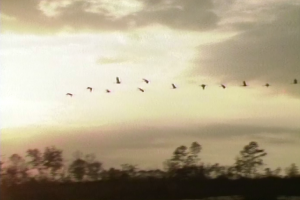
In the news video below produced by Donna Green-Townsend on nesting ecology of Sandhill Cranes in Florida, you will hear the melody of McLean’s song performed by Melrose singer-songwriter David Beede and Kate Bostrum. The nesting ecology research was a cooperative effort between the Florida Fish and Wildlife Conservation Commission and the Wildlife and Range Sciences Department at the University of Florida. (this report originally aired statewide on the IFAS program Florida File in 1990)

